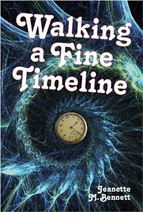 It looked very different from the Ellis Island I had last seen. The large wooden structure is gone, replaced with a beautiful Beaux-Arts brick building dating from 1900. The island had been greatly expanded to 27.5 acres and more buildings added.
It looked very different from the Ellis Island I had last seen. The large wooden structure is gone, replaced with a beautiful Beaux-Arts brick building dating from 1900. The island had been greatly expanded to 27.5 acres and more buildings added. The buildings have all been carefully preserved. It hadn’t always been that way. When Ellis Island was closed in 1954 it had been abandoned to the elements and vandals. Soon the great hall had become a pigeon roost. The public was appalled. For many Americans, this was where they traced their families history to. This was their Plymouth Rock. This was sacred ground. They raised the money and restored the main building in 1990, turning it into an immigration museum. Throughout the 21st century more money was raised until all of the buildings had been restored.
The buildings have all been carefully preserved. It hadn’t always been that way. When Ellis Island was closed in 1954 it had been abandoned to the elements and vandals. Soon the great hall had become a pigeon roost. The public was appalled. For many Americans, this was where they traced their families history to. This was their Plymouth Rock. This was sacred ground. They raised the money and restored the main building in 1990, turning it into an immigration museum. Throughout the 21st century more money was raised until all of the buildings had been restored. I brought the beat-up carpet bag I had used on my journey and offered it to the museum to add to their baggage room display. These are more than just antique luggage…these were actual trunks and bags that had come through Ellis Island, donated by former immigrants and their descendants. They were thrilled with my gift. I was wearing the same old sack suit I had worn and offered to donate it, too--although they would have to wait for that. I wasn’t about to strip for them.
I brought the beat-up carpet bag I had used on my journey and offered it to the museum to add to their baggage room display. These are more than just antique luggage…these were actual trunks and bags that had come through Ellis Island, donated by former immigrants and their descendants. They were thrilled with my gift. I was wearing the same old sack suit I had worn and offered to donate it, too--although they would have to wait for that. I wasn’t about to strip for them.I think my favorite display was the robots they had wandering about. The museum had considered using famous people, then decided to use composite characters. That way visitors would see their own ancestors in the automatons. The bots were of various ages and ethnic groups, all in period costumes. One only had to walk up and speak to them and the bot would tell you their story. Problem was visitors kept coming up and me my story. They were a bit embarrassed to find out I was real.
Everyone was thrilled with the footage I had brought back of my journey in steerage and through Ellis Island. They were especially delighted that I had captured Irving Berlin entering the country. The Museum Director, Ann Kabadaian joked that I should have waited a year. Maybe I would have caught her ancestor coming into Ellis Island. Her family came to this country from Turkey to escape the Hamidian Massacres of Armenian Christians. Too many had to come to America to escape genocide.
I had a very lovely time and was glad I was able to bring back this record. It helped the descendants feel closer to their ancestors, who came to this country with little more than a dream of a better life.
Great internet sites to visit:
Ellis Island Immigration Museum - video from PBS’s “Great Museums”
Ellis Island Foundation - Search for an ancestor, look at old photographs, read an immigrant’s account.
Interactive tour of Ellis Island



























